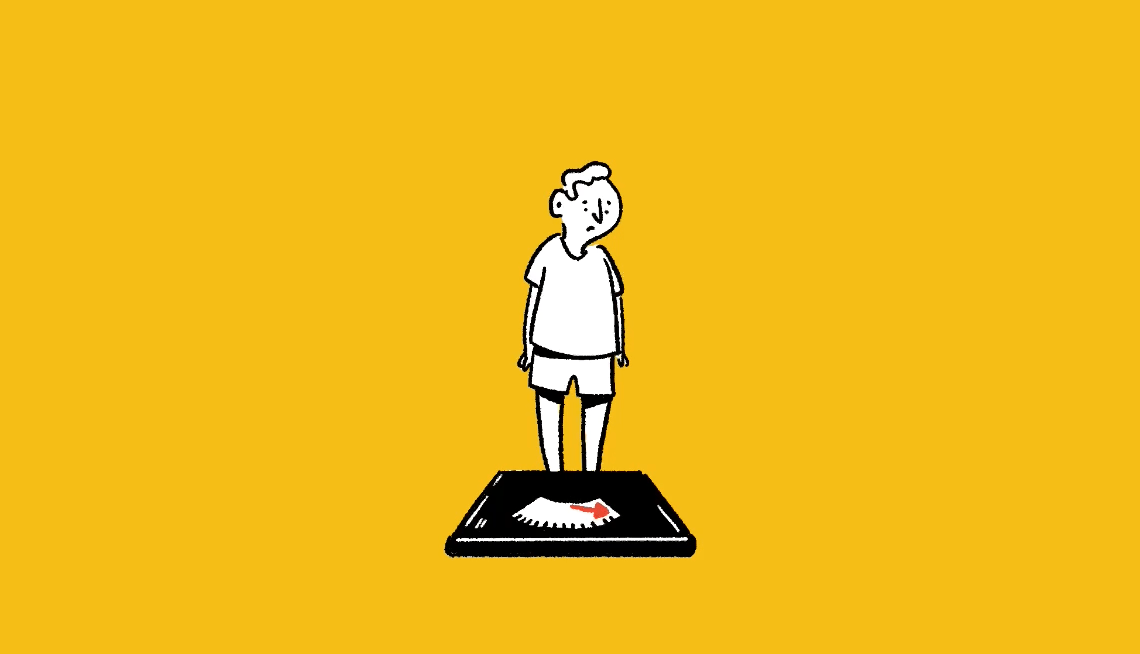AARP Hearing Center


I've heard having a little extra weight can be protective as we get older. Is that true?
Most of us are pretty obsessed with how much we weigh. But instead of just looking at numbers on a scale, I suggest you pay attention to your body mass index, or BMI. This measurement calculates your estimated body fat based on both your height and weight. It’s considered a better indication of your overall health and calculates whether someone is underweight, normal weight, overweight or obese.
The Centers for Disease Control says that a healthy BMI for all adults over 20 years old is between 18.5 and 24.9. You can check where you stand by going to AARP’s BMI calculator. In general, I don’t think there’s a big difference within the normal range of your BMI if you fall somewhere within the upper limit versus the lower limit for your height.
If your BMI doesn’t show that you’re obese or overweight, a few added pounds could be helpful. As we age, we tend to lose muscle and bone density, which can result in weight loss and a sense of fragility. But you don’t want your added weight to be in your stomach area. We call this visceral fat. If fat is lodged there, it releases substances that cause inflammation throughout your body, which can lead to high blood pressure, cardiovascular disease and other unhealthy conditions


Ask Dr. Adam
Adam B. Rosenbluth, M.D., is an internist and cardiologist in New York City. Each Monday, he’ll weigh in on your questions about how to make your body work better for you. His AARP book will be published in 2027.
Instead, aim for increasing your weight by building up muscle mass. Studies show that there are a host of health benefits when our muscles are strengthened especially as we age – everything from recovering faster from infection and injury, to better cognition, balance and overall longevity.
My mom, who is approaching 90, gets a little frustrated with me because I’ve enrolled her in three exercise classes a week. She says, “Adam, they exhaust me!” I try to emphasize to her that it’s the good kind of exhaustion. “You’re building muscles and keeping strong,” I tell her. “And that’s critical for your mental and physical wellbeing.” If you want to try working out at home, AARP has dozens of exercise videos to guide you.































































You Might Also Like
Work Out at Home With Our Free Pilates Videos
Grab a mat and join certified instructors from Pilates Anytime for classes good for all ability levels
Can You Say No to Being Weighed at the Doctor’s Office?
What to do if you dread the scale25 Easy Ways to Eat Less Salt
Tips for cutting back on sodiumRecommended for You